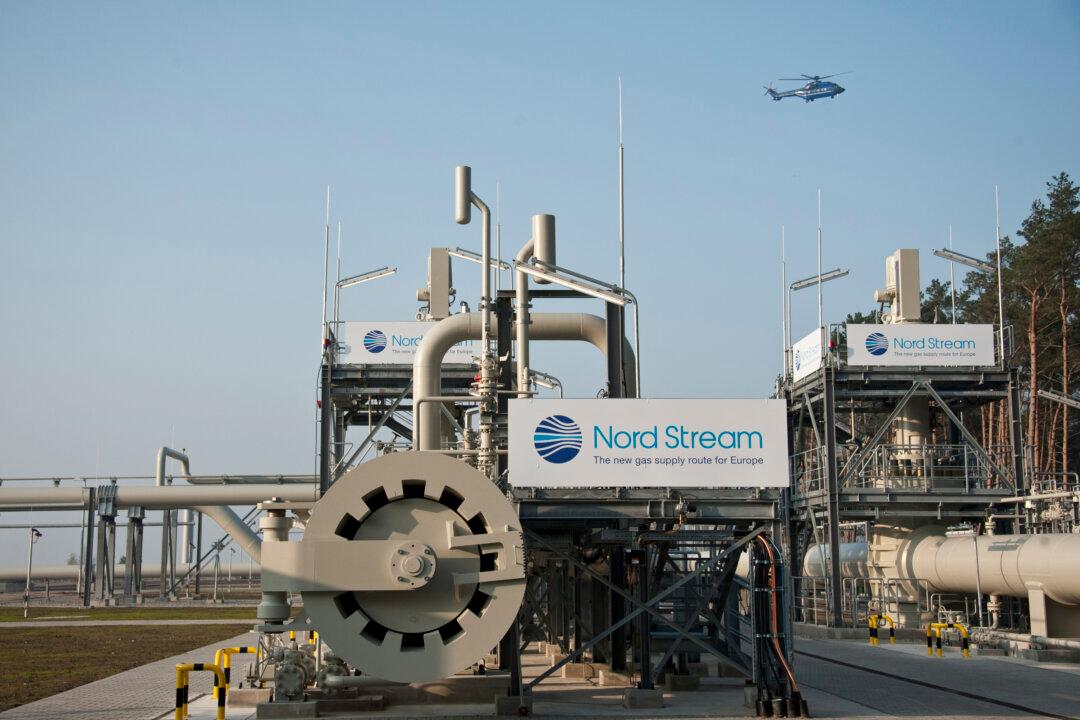Commentary
Viewpoints
Opinion
Russian Energy Cuts to Europe Will Benefit American Exports
Europe’s energy supply is stifled by Russia in retaliation for European support to Ukraine

A helicopter flies over the terminal of the Nord Stream gas pipeline, the primary conduit of Russian gas to Europe, in Lubmin, Germany, on Nov. 8, 2011. John MacDougall/AFP via Getty Images
Anders Corr has a bachelor’s/master’s in political science from Yale University (2001) and a doctorate in government from Harvard University (2008). He is a principal at Corr Analytics Inc. and publisher of the Journal of Political Risk, and has conducted extensive research in North America, Europe, and Asia. His latest books are “The Concentration of Power: Institutionalization, Hierarchy, and Hegemony” (2021) and “Great Powers, Grand Strategies: the New Game in the South China Sea” (2018).
Author’s Selected Articles




